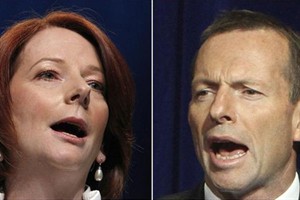
If the Australian electorate used last week’s poll to speak out on climate change, it certainly did not do so without equivocation.
With three parliamentary seats left to fill with certainty, the results to date suggest a vote evenly split between the less climate friendly Coalition and the more climate friendly Australian Labor Party (ALP). The Greens have picked up only one seat and there are likely to be four independents, three of whom it seems will assume a king- or queen-maker role.
Prior to the election, pollsters seemed to agree that the ALP’s capitulation on climate change was likely to cost it support and that the Greens would be the major beneficiaries. However, while the Greens’ share of the vote has increased to 11.4 per cent (at the time of writing), it appears to be likely to fall short of a predicted 14 per cent. The party’s one seat will not hand it the balance of power. And the key independents, while progressive on climate change, have hardly foregrounded it as an issue in the list of demands submitted to the leaders of the ALP and the Coalition.
George Monbiot’s thoughtful piece on how climate change is still resolutely a left-right issue – in Australia and in the US – disappointingly falls back on the same old green explanation. He concludes by writing:
‘Yes, man-made climate change denial is about politics, but it’s more pragmatic than ideological. The politics have been shaped around the demands of industrial lobby groups, which happen, in many cases, to fund those who articulate them.’
For sure, both denialism and industry lobbying are important factors, but they too easily explain what is probably a highly seasoned and more complex hegemonic cauldron.
For instance, take a look at this Newspoll/The Australian ranking of issues that Australian voters said were important in the run up to the election (click on the ‘importance and best party to handle major issues’ link). In the two years since July 2008, climate change fell in importance by more than ten percentage points and at 23-25 July 2010 (i.e. immediately prior to the election) was ranked only eighth, with healthcare, education, the economy and other usual suspect issues taking the top slots.
This could all be part of a fiendish plot by industry, whose capture of the media and politics subtly commands the views of voters. However, it could also be that even in Australia, where severe drought and staggeringly destructive bush fires have offered a prescient glimpse of a world under a changed climate, voters still put more immediate interests first.
So can the three independents change the climate of politics in Australia. ippr’s friends at The Climate Institute think they can. However, as a leader in The Australian seeks to remind them:
‘… as they say in the southern United States, the independents should dance with the one who brung them. They will be held responsible for the choice they are about to make between Labor and the Coalition and could find themselves out of a job in three years, or sooner, if their constituents disagree.’
In other words, electoral politics are the ones that in the end matter to politicians. If on climate change the electorate does not speak or does not speak unequivocally, then it’s hard to see how politicians can respond with the kind of vigour required of them.
No comments:
Post a Comment